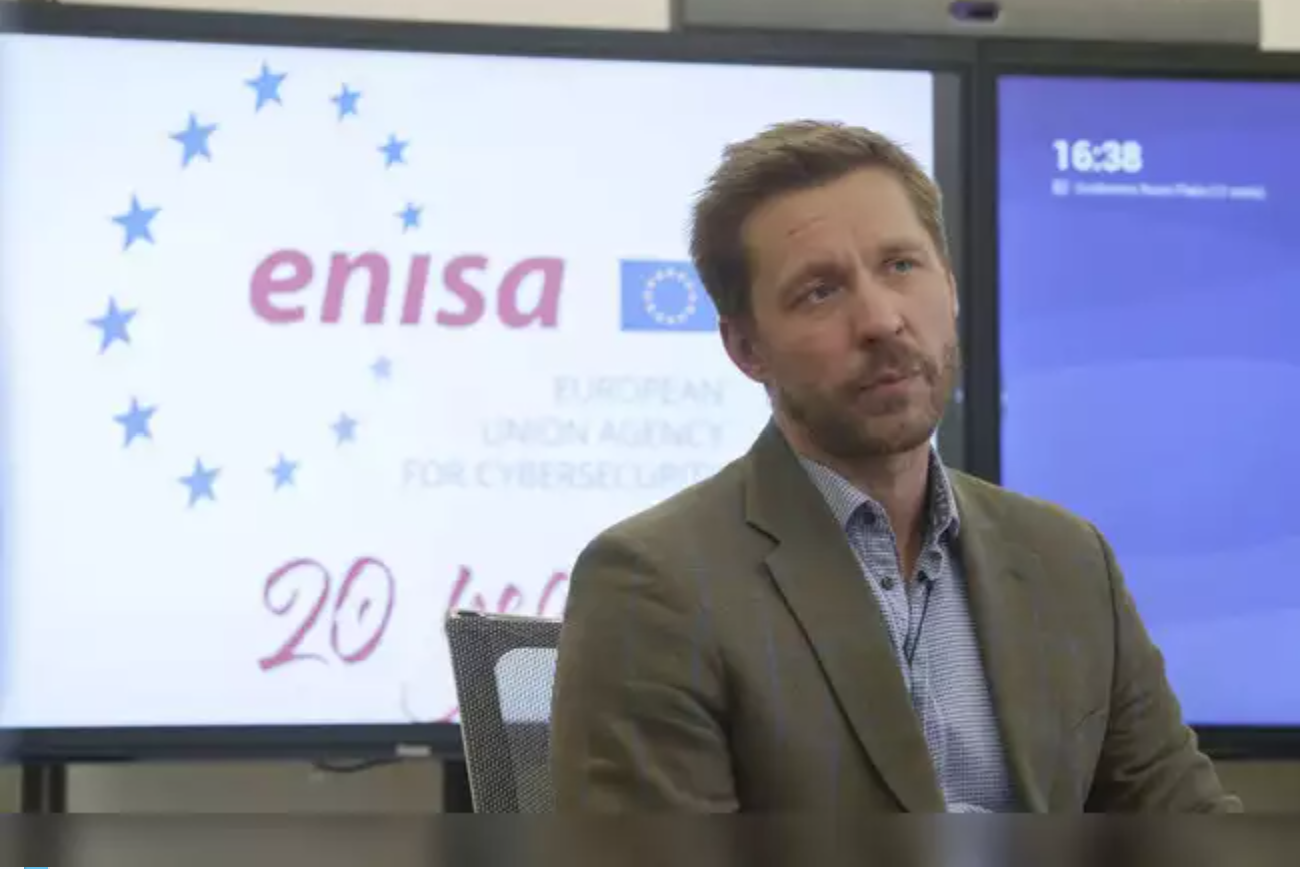Europe’s Cybersecurity Chief Reports Doubling of Disruptive Attacks in 2024, Cites Russian Involvement
Disruptive digital attacks in the European Union have doubled in recent months, with many attributed to Russian-backed groups, according to the EU’s top cybersecurity official. Juhan Lepassaar, head of the European Union Agency for Cybersecurity (ENISA), revealed in an interview with The Associated Press that geopolitically motivated attacks have been on the rise since Russia’s full-scale invasion of Ukraine on February 24, 2022.
“The number of hacktivist attacks targeting European infrastructure has doubled from the fourth quarter of 2023 to the first quarter of 2024,” Lepassaar stated at ENISA’s headquarters in Athens on Tuesday. “It’s quite a significant increase.”
These attacks are increasingly aimed at election-related services, raising concerns ahead of the European Parliament elections scheduled for June 6-9. These elections will influence the composition of the European Commission, the EU’s executive branch. On Wednesday, Belgian authorities conducted searches at the home and office of a European Parliament employee in Brussels over suspected Russian interference. Upcoming elections in the United States, Britain, and other countries have heightened awareness among security agencies of potential disruption campaigns funded by adversaries.
ENISA has been leading exercises and intense consultations over the past seven months to strengthen the resilience of election-related agencies in the EU. The agency’s annual report for 2023 highlighted a surge in ransomware attacks and incidents targeting public institutions.
Lepassaar noted that many attack methods, though not always successful, are often first tested in Ukraine before being deployed in EU countries. “This is part of the Russian war of aggression, which they fight physically in Ukraine but also digitally across Europe,” he said.
Experts are increasingly concerned about the use of artificial intelligence tools to target Western voters with misleading or false information, including hyperrealistic video and audio clips known as deepfakes. Lepassaar echoed these concerns, highlighting that AI-enabled disinformation and information manipulation are significant threats.
His comments align with a recent warning from U.S. Director of National Intelligence Avril Haines, who noted that technological advancements will enable more nations and groups to launch effective disinformation campaigns. U.S. and European experts are collaborating to help security agencies anticipate emerging digital threats and vulnerabilities over the coming decade. ENISA has identified food production, satellite management, and self-driving vehicles as areas requiring particular attention.
Lepassaar emphasized that cybersecurity must become an integral part of both design processes and consumer awareness. “We have a societal challenge ahead of us to understand digital security in the same way we understand security in everyday traffic,” he said. “When we are driving, we are aware of what is going on around us. We are alert. The same behaviors and habits need to be instilled when operating in any digital environment.”




